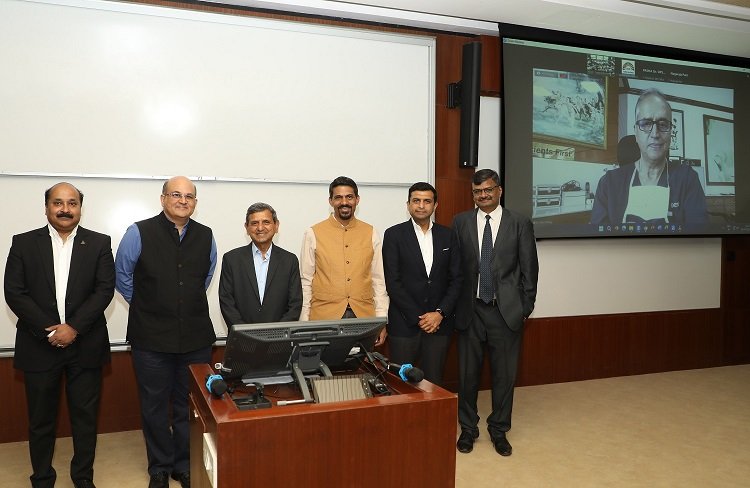Maersk signs landmark green methanol offtake agreement with Chinese developer Goldwind
Commercially viable long-term offtake agreement for annual volumes of 500KT to enable low carbon operations for the first 12 large methanol-enabled Maersk vessels on order.
The offtake agreement between A.P. Moller – Maersk and Chinese developer Goldwind, a global leader in clean energy, reaches into the next decade and marks the first large scale green methanol offtake agreement for the global shipping industry.
This deal is a milestone for Maersk as it enables us to significantly reduce our emissions footprint in this decade and stay aligned with the 1.5-degree Celsius trajectory as set out in the Paris Agreement, ensuring continued supply of low carbon shipping services to our customers in the second half of this decade. The volumes combine a mix of green bio-methanol and e-methanol, all produced utilising wind energy at a new production facility in Hinggan League, Northeast China, around 1000km northeast of Beijing. Production is expected to begin in 2026. Following this signed offtake agreement, Goldwind expects to confirm a final investment decision for the facility by the end of the year.
A.P. Moller – Maersk will take delivery of its first large ocean-going methanol-enabled vessel (16,000 TEU) in the first quarter of 2024 and is diligently working on sourcing solutions with a broad range of global partners for the entire vessel series being delivered in 2024-25.
Rabab Raafat Boulos, Chief Infrastructure Officer at A.P. Moller – Maersk said, “A.P. Moller – Maersk aims to reach net-zero greenhouse gas emissions by 2040 across its business. The deal significantly de-risks the initial stages of Maersk’s net-zero journey and supports expectations for a competitive green methanol market towards 2030. The record-high volumes can annually propel more than half the methanol-enabled capacity Maersk currently has on order.”
“Goldwind respects Maersk as a pioneer in the field of maritime green fuel and we are excited to jointly promote the green transition with Maersk. With this project, Goldwind will continue to explore the innovative application of new technologies, pursue the organic combination of green electricity and green fuel production, and optimize the production process of green methanol. Goldwind is committed to collaborating with companies involved in the green methanol industry, with the aim to make green methanol one of the most important and economically feasible clean maritime fuels in the future”, said Wu Gang, Chairman, Goldwind
Rabab Raafat Boulos also mentioned that we are encouraged by the agreement because its scale and price confirm our view that green methanol currently is the most viable low-emission solution for ocean shipping that can make a significant impact in this decade. The deal is a testament to the momentum and vast efforts we see among ambitious developers driving projects forward across geographies, however, we still have a long way to go in ensuring a global green fuels market that can enable the decarbonisation of global shipping.
Commercially viable long-term offtake agreement for annual


